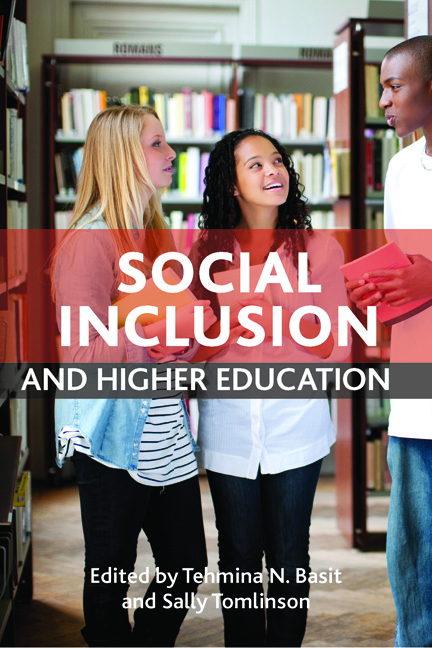two - Widening participation from an historical perspective: increasing our understanding of higher education and social justice
Published online by Cambridge University Press: 01 September 2022
Summary
Introduction
It is tempting, when considering issues of access to education and social inclusion in the United Kingdom, to wholly root them in the contemporary discourse brought about by the post-1997 policies of the ‘New Labour’ government and the subsequent administrations. Equally, in the current climate, it would be understandable if policies such as widening participation to higher education were located within a postmodern construct: incorporating globalisation, post-Fordism, the skills agenda, meeting 21st-century challenges of rapid change and fragmentation, and so on. However, to do this, or any other research into social justice and education, without recourse to the wider historical perspective would be a mistake. Before entering into a study of contemporary aspects of creating greater access to higher education (also known as widening participation) and social inclusion generally, it is worth considering how in the past society responded to new initiatives in education provision. This tells us something about the ways in which the current climate, in which educationalists and practitioners currently operate, has developed. An investigation into the historical precedence is important if one is to fully understand the enormity of the task at hand today with respect to adult education and social justice. After all, how can the scale of the phenomenon be fully understood, or a prognosis made about the future, until one appreciates the influencing factors that have contributed to the conditions experienced today?
Too often, through no fault of their own, educators working on access and inclusion are locked into time-specific projects and initiatives, tied to demonstrable outcomes, and constrained by temporary contracts; they are moulded and directed by the political dogma and expediency of the time. Potentially, this can stifle independent research that leads to a greater comprehension of the wider perspectives influencing their field. The aim of this chapter is to help the reader develop this wider context through an investigation, although by no means exhaustive, of certain discourses concerning universities, access, social justice and adult education. A key facet of this chapter will be a discussion of initiatives that have appeared episodically from the 19th century to the present day, revealing prevalent modes of thinking in the context of working-class education.
- Type
- Chapter
- Information
- Social Inclusion and Higher Education , pp. 41 - 64Publisher: Bristol University PressPrint publication year: 2012

